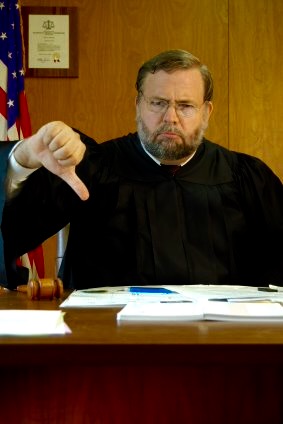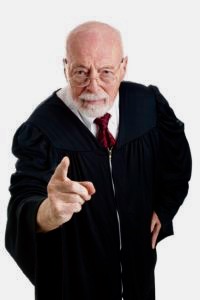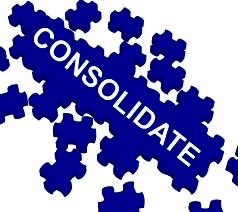The BC Appeal court in Smithies Holdings Inc. v. RCV Holdings Ltd., 2017 BCCA extensively reviewed the law relating to an award of special costs and held that reprehensible pre litigation conduct should not be included when a judge exercises his or her discretion as to award or not award special costs.
The court stated that oppressive or reprehensible conduct by a party in pre litigation might instead be awarded punitive damages, but any costs award for such behaviour should be limited to during the course of the litigation and not before.
Special costs are typically awarded when there has been some form of reprehensible conduct on the part of one of the parties: Young v. Young [1993] 4 SCR 3 at 134–138. Special costs are not compensatory; they are punitive: Grewal v. Sandhu, 2012 BCCA 26 at para. 106. They are awarded when a court seeks to disassociate itself from some misconduct: Fullerton v. Matsqui (District) (1992), 74 B.C.L.R. (2d) 311 (C.A.) at para. 23. There are circumstances where special costs may be ordered where there has been no wrongdoing: Gichuru v. Smith, 2014 BCCA 414 at para. 90. These reasons are not concerned with such types of cases.
[57] The leading authority on special costs is this Court’s decision in Garcia v. Crestbrook Forest Industries Ltd. (1994), 9 B.C.L.R. (3d) 242 (C.A.). There, Mr. Justice Lambert, writing for the Court, set out that the threshold for special cost awards is “reprehensible conduct”. He noted the continuum of circumstances in which special costs could be awarded, ranging from “milder forms of misconduct deserving of reproof or rebuke” to “scandalous or outrageous conduct”:
[17] Having regard to the terminology adopted by Madam Justice McLachlin in Young v. Young, to the terminology adopted by Mr. Justice Cumming in Fullerton v. Matsqui, and to the application of the standard of “reprehensible conduct” by Chief Justice Esson in Leung v. Leungin awarding special costs in circumstances where he had explicitly found that the conduct in question was neither scandalous nor outrageous, but could only be categorized as one of the “milder forms of misconduct” which could simply be said to be “deserving of reproof or rebuke”, it is my opinion that the single standard for the awarding of special costs is that the conduct in question properly be categorized as “reprehensible”. As Chief Justice Esson said in Leung v. Leung, the word reprehensible is a word of wide meaning. It encompasses scandalous or outrageous conduct but it also encompasses milder forms of misconduct deserving of reproof or rebuke. Accordingly, the standard represented by the word reprehensible, taken in that sense, must represent a general and all encompassing expression of the applicable standard for the award of special costs.
[100] At the outset, it is important to emphasize that in exercising the power to fix costs a judge cannot act arbitrarily or capriciously. He or she must act in a manner consistent with the Rules and the principles that have long governed such awards. In Stiles v. B.C. (W.C.B) (1989), 38 B.C.L.R. (2d) 307 (C.A.) at 310, Lambert J.A. articulated the limits on a judge’s power to award costs:
…Generally, the decisions on costs, including both whether to award costs, and, if awarded, how to calculate them, are decisions governed by a wide measure of discretion. See Oasis Hotel Ltd. v. Zurich Insurance Co. (1981), 28 B.C.L.R. 230, [1981] 5 W.W.R. 24, 21 C.P.C. 260, [1982] I.L.R. 1-1459, 124 D.L.R. (3d) 455 (C.A.). The discretion must be exercised judicially, i.e. not arbitrarily or capriciously. And, as I have said, it must be exercised consistently with the Rules of Court. But it would be a sorry result if like cases were not decided in like ways with respect to costs. So, by judicial comity, principles have developed which guide the exercise of the discretion of a judge with respect to costs. Those principles should be consistently applied; if a judge declines to apply them, without a reason for doing so, he may be considered to have acted arbitrarily or capriciously and not judicially.
[Emphasis added in [131] As has been set out in many authorities reviewed here, pre-litigation conduct that gives rise to a cause of action will already be the subject of a damage award flowing from the objectionable conduct. Where a party’s misconduct is so malicious, oppressive and high-handed that it offends the court’s sense of decency, an award of punitive damages may also follow. Whiten provides a principled structured framework for such awards.
[132] Special costs are an inherently unsatisfactory mechanism to punish pre-litigation conduct. Special costs are intended to punish reprehensible conduct which as per Garcia includes scandalous or outrageous conduct as well as milder forms of misconduct deserving of reproof or rebuke. The case law has considered a range of pre-litigation conduct, including breach of contract, negligence, breach of fiduciary duty, fraud, misappropriation, deceit, sexual assault, failure to follow a constitutionally mandated process and murder. All such conduct could be said to be deserving of rebuke.
[133] Attempting to draw the line on a principled basis as to what pre-litigation conduct should be sanctioned by special costs and which should not is, as amply demonstrated by the case law, a near impossible task. It is also an unnecessary task as the law already provides appropriate relief and remedies for such conduct. In my respectful opinion, special costs should only be awarded to punish reprehensible conduct in the litigation.
[134] In the result, I am of the view that a bright line can and should be drawn so that judges will be able to exercise their discretion in like cases in a like manner. Special costs should be reserved to punish and deter reprehensible conduct in the course of litigation. Pre-litigation conduct should not be considered in determining whether such an award is appropriate. There are other suitable mechanisms to censure pre-litigation conduct.
APPLICATION OF THE BRIGHT LINE RULE
[135] It is clear from the trial judge’s reasons that special costs were awarded in this case because of the pre-litigation conduct. That conduct was the central issue in the trial. It is the basis of RCV’s claim for loss of opportunity. I note in his costs reasons the trial judge stated that RCV did not claim punitive damages and in the circumstances of this case, it could not have done so. While it is true that RCV did not seek punitive damages, I am not aware of any reason why it could not have done so.
[136] For the reasons I have set out, pre-litigation conduct should not have been considered in determining the cost award. I thus find the trial judge erred in principle. In the result, I would allow the appeal and set aside the award of special costs. RCV is entitled to the costs of the trial on a party and party basis. The Appellants are entitled to the costs of the appeal.









